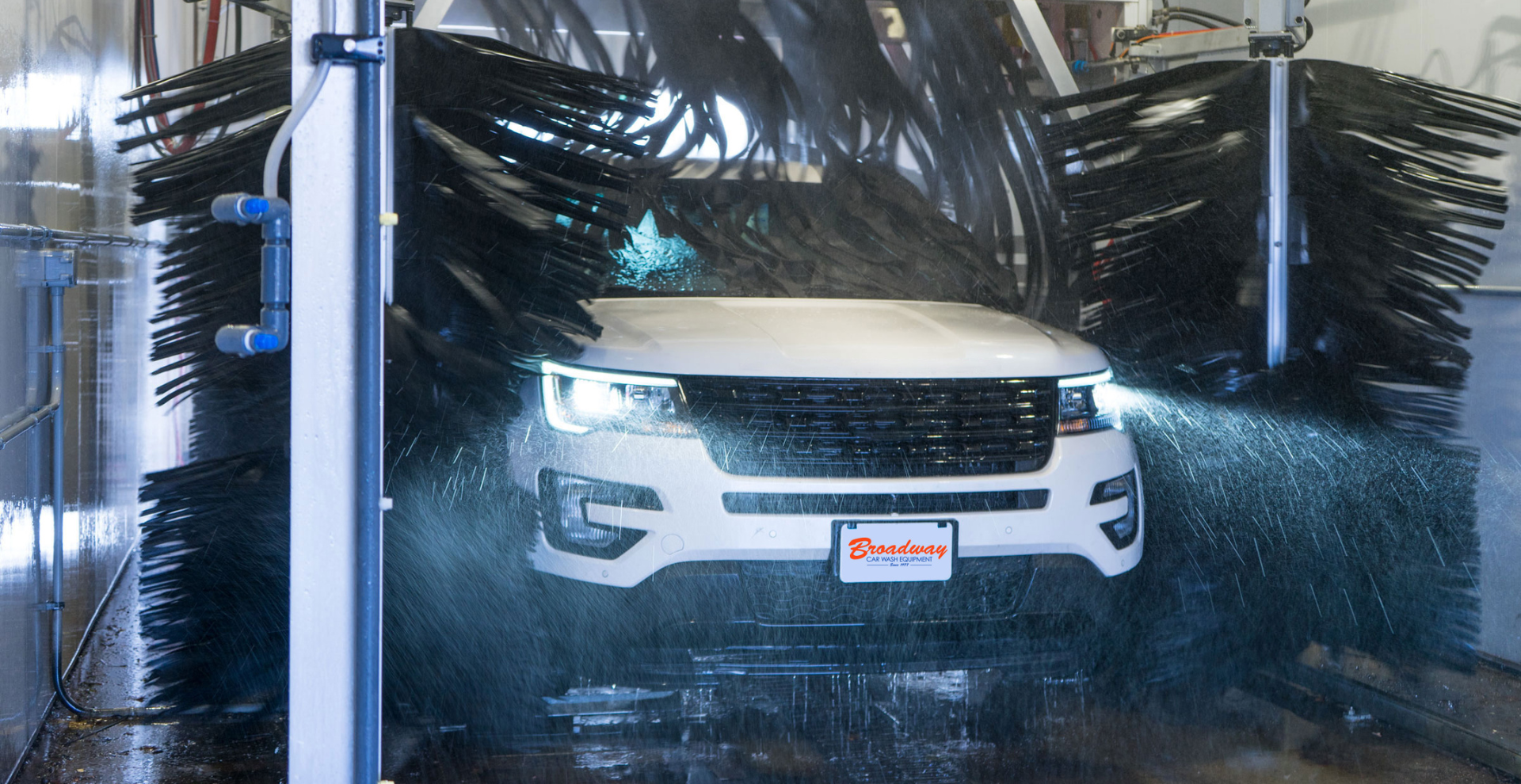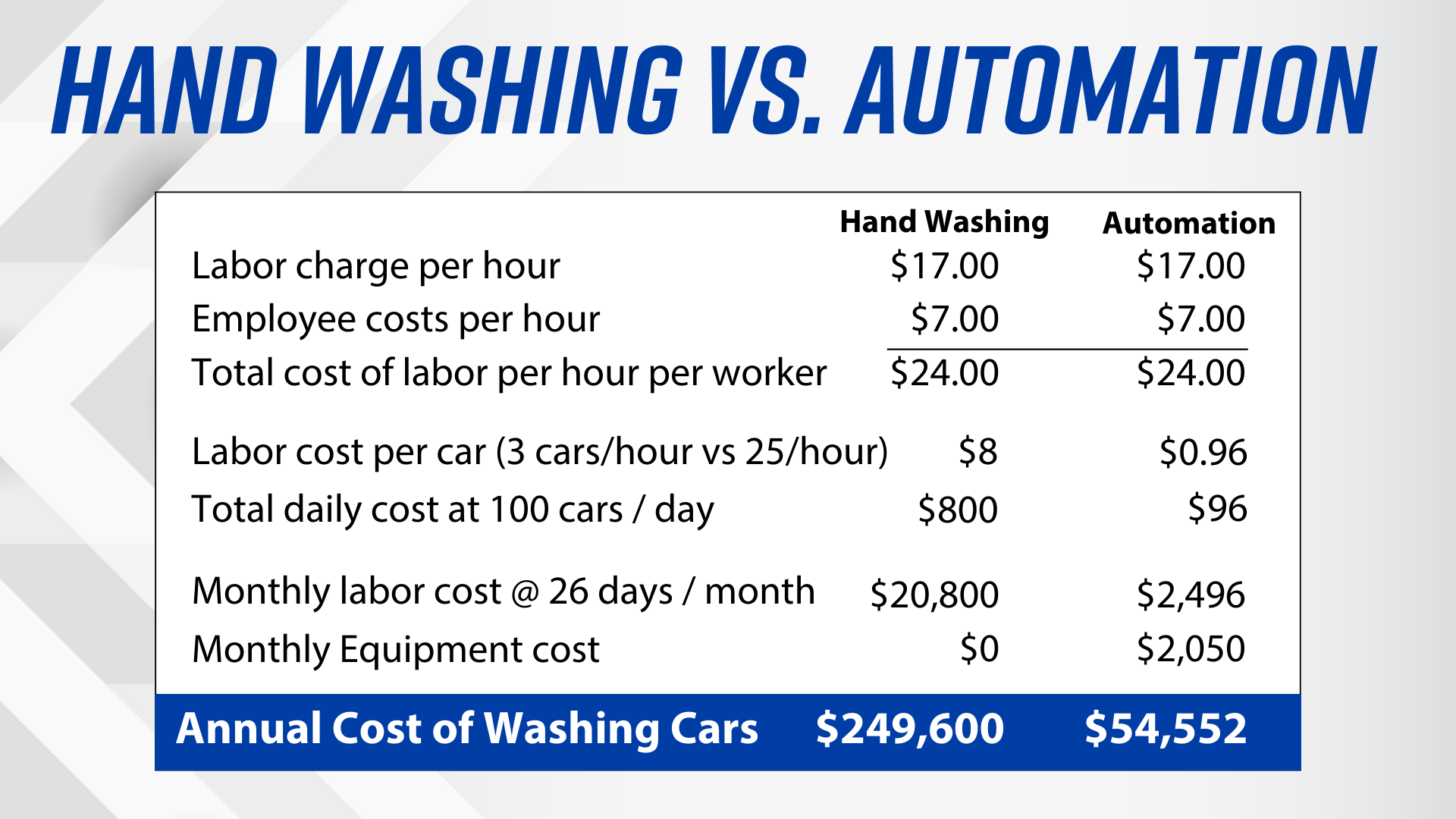Embracing Automation: The Future of Car Wash Operations at Dealerships
In today’s rapidly evolving economy, businesses across all sectors are facing a common challenge: rising labor costs. The global labor market is tightening, with wages increasing as demand for skilled labor outstrips supply. According to the U.S. Bureau of Labor Statistics, the average wage and salary rates in the U.S. have seen consistent increases. This financial pressure is pushing businesses, including automotive dealerships, to seek more cost-effective, efficient solutions—such as automation.

What is causing this recent labor shortage?
Combined with higher costs of living, the labor market has been demanding an ever-growing need for higher compensation for almost every industry. With year-on-year inflation hitting 3-4% in 2024, and weekly earnings constantly on the rise, employers can look at previous years data and acknowledge that their own wages are going to be on the rise as well. Without matching this trend, hiring will be more competitive in entry level jobs. In the context of dealership/service jobs, like detailing and cleaning cars, this means that companies will be seeing even greater employee turnover rates. Many industries are forced to counteract this trend by paying significantly higher wages than in the past to retain employees, once again directly causing inflated costs for human capital.
Labor itself requires onboarding processes, where hiring and training employees in order to get them to a point of consistency in car detailing can be challenging. Turnover rates for that level of employment can require service bays to constantly be in this training process. Compared to an automated machine, which will perform consistently over hundreds of thousands of cars, can massively decrease time spent on training, employment costs, and even water costs.

The Case for Automated Car Wash Systems
For dealerships, labor costs associated with maintaining a manual car wash setup can quickly accumulate. Traditional handwashing not only requires continuous labor but is also less efficient in terms of both water use and time. A study from the International Carwash Association notes that automated car wash systems use significantly less water per wash compared to handwashing. Specifically, an automated car wash can use less than 45 gallons per car, while manual washing can use up to 100 gallons.
Automated car wash systems provided by companies like Broadway Equipment are designed to maximize efficiency and minimize waste. This shift not only helps in managing operational costs but also supports environmental sustainability—a growing concern among consumers.
Why Automation Is Becoming a Necessity
The move towards automation is not just about cutting costs; it’s about enhancing overall service quality and reliability. Automated car wash systems deliver a consistent level of service that manual processes can rarely match. Consistency in service can lead to higher customer satisfaction rates, encouraging repeat business and helping your dealership’s reputation in the long run. In sectors like manufacturing, automation has led to a 22% reduction in production time and a 17% decrease in material waste, demonstrating similar potential efficiencies in automotive services (per data from the US Department of Labor).
Long-term Financial Benefits
Adopting automated systems might seem like a significant upfront investment, but the long-term savings are substantial. By reducing the reliance on manual labor, dealerships can lower their operational costs significantly. This reduction allows for a reallocation of resources towards other areas of the business, such as customer service or sales, which can directly contribute to revenue growth. Up-to-date, and even upgraded machine-based operations can become a key differentiator in a competitive market, positioning the dealership not just as a market leader but also as an innovator.
With every industry moving towards automation, cutting labor costs now through strategic investments in technology like car wash systems will position dealerships well for future profitability. The transition to automation is not just an operational change but a strategic move that aligns with broader market trends and consumer expectations.

Conclusion
As labor costs continue to rise globally, the case for automation in dealership operations, especially in car washing, becomes increasingly compelling. Broadway Equipment offers state-of-the-art automated car wash systems that not only reduce labor costs but also improve efficiency, conserve water, and enhance customer satisfaction. Embracing these technologies today will not only address current economic challenges but also set up your dealership for long-term success.
Investing in automated car wash systems from Broadway Equipment is more than just an operational decision; it’s a strategic move towards future-proofing your business in an ever-evolving automotive market.
